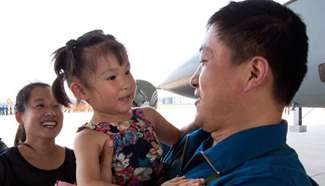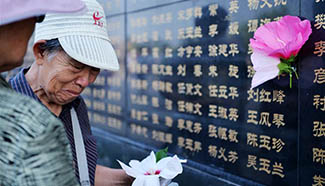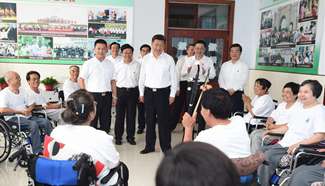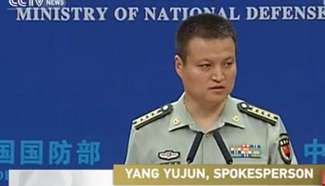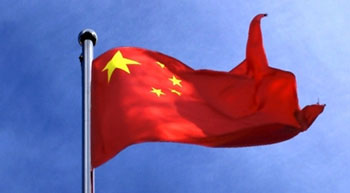SANAA, July 29 (Xinhua) -- Yemen's government said Friday its participation in the UN-sponsored peace talks in Kuwait was over following the declaration by Shiite Houthi rebels and their allies to form a political council to unilaterally rule the country.
"Thanks to our brothers in Kuwait, the prince and the government, for their all sincere efforts they provided to help succeed the talks, but the talks have completely failed," the government said in a statement aired by state TV.
"We had participated in patience for the sake of our people, and we today end the talks to save our people from the rebels," said the statement.
The government considered the rebels' declaration as a "clear challenge to the international community and to the resolutions of the United Nations Security Council."
It said the rebels' stance was another "explicit coup against the Gulf Initiative and the whole political process."
The government added that its delegates would leave Kuwait on Saturday, holding the Houthi group and its ally of former President Ali Abdullah Saleh's party fully responsible for the failure of the talks.
The Houthi group and Saleh's party signed on Thursday an accord in the capital Sanaa, which is under control of both forces since it was stormed in 2014, to declare the formation of a "higher governing political council" to unilaterally rule the country in all its political, military, security and economic affairs.
They agreed on a rotating presidency and vice-presidency of the council, which comprises 10 members equally divided between Houthi group and Saleh's party.
But this action was met with full rejection by the UN Yemen envoy to the talks, Ismail Ould Cheikh Ahmed.
"The agreement by AnsarAllah (Houthis) and General Peoples' Congress (Saleh's party) to establish Political Council contravenes their commitments to support the UN process," Ould Cheikh Ahmed said in a statement on his twitter account.
"Announcing a unilateral governing arrangements is not in line with the peace process and endangers substantial progress made in Kuwait," he said.
"This represents a violation of UNSCR 2216 which asks all parties to refrain from unilateral actions that undermine political transition," the UN envoy added.
In their joint statement carried by Houthi-controlled Saba news agency, the Houthis and Saleh expressed frustration with the ongoing UN-brokered peace talks in Kuwait, accusing Saudi Arabia of buying the United Nations to issue resolutions on behalf of its (Saudi) coalition.
The move came as the Houthi armed group and its ally party of former President Saleh have been engaging in peace talks in Kuwait since April that have so far failed to achieve progress.
The move signals the failure of peace talks.
The Houthi group and Saleh have refused to obey the UN Security Council Resolution 2216 that orders them to withdraw from the capital Sanaa and other cities, hand over weapons back to the legitimate government and end their rebellion.
Instead, they insist to form a joint presidential council and a transitional government and to be included in both leaderships.
Saudi Arabia has been leading a military coalition against the Houthis and Saleh's forces in Yemen since March 26, 2015, in support of the elected government of internationally recognized President Abd-Rabbu Mansour Hadi.
The Iranian-allied Houthis, who are based in the far north border province of Saada and backed by forces loyal to former President Saleh, stormed the capital Sanaa and forced President Hadi with his government into exile in 2014 over charges of corruption.
Controversial positions by the rebels and government triggered growing fears of new wave of intensified war.
The fears spread all over the streets of Yemeni cities from darkness of the looming war on the skies and grounds of the Yemeni cities, in which the Houthis and Saleh's fighters hold most of Yemen's northern half while government forces backed by Saudi-led military coalition share control of the rest of the country.
The civil war, ground battles and airstrikes have already killed more than 6,400 people, half of them civilians, injured more than 35,000 others and displaced over two millions, according to humanitarian agencies.


